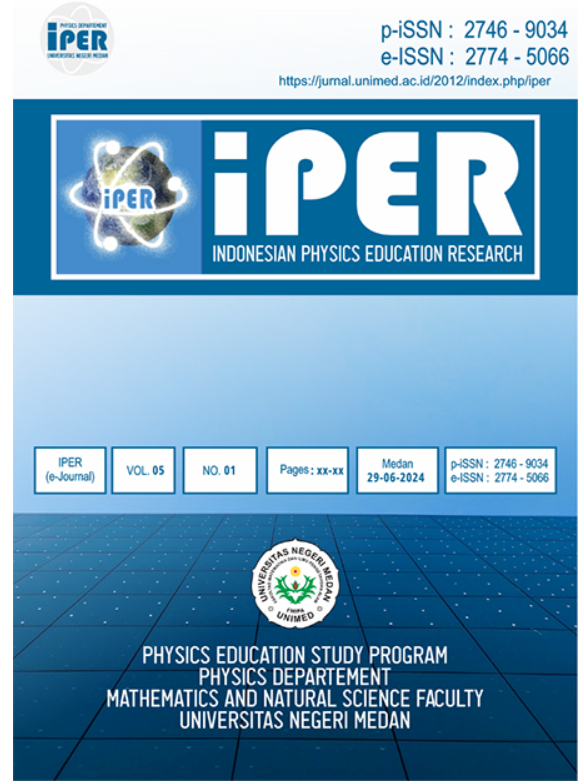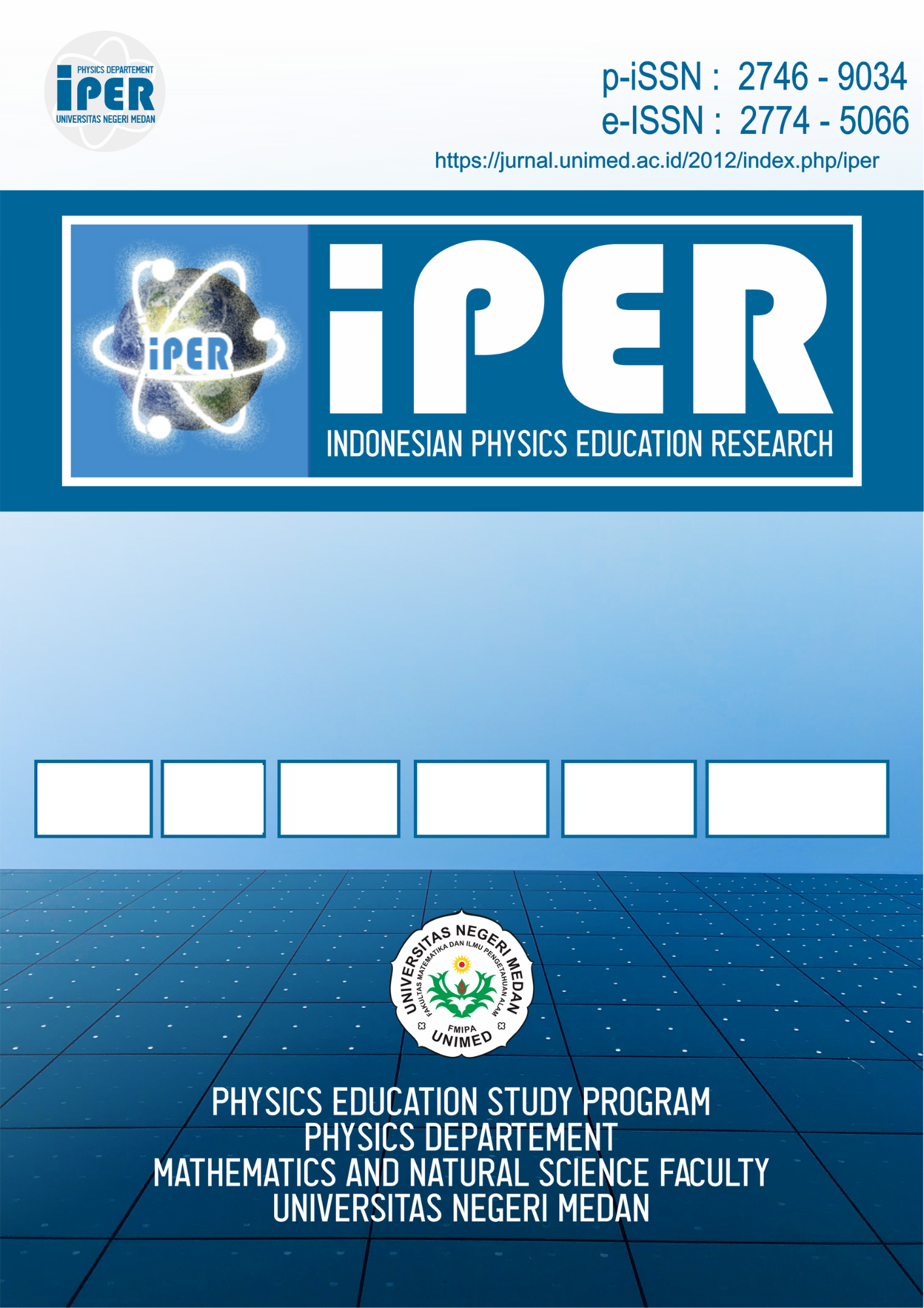IMPROVING PHYSICS LEARNING OUTCOMES WITH DIFFERENTIATE LEARNING ON VIBRATION AND WAVES OF CLASS VIII STUDENTS AT MTS AL-WASHLIYAH GEDUNG JOHOR MEDAN
DOI:
https://doi.org/10.24114/iper.v4i2.62990Keywords:
Differentiated learning, Vibrations, waves.Abstract
This study aims to improve students' physics learning outcomes by applying differentiation learning to vibration and wave material. The population in this study were class VIII students of MTs Al-Washliyah Gedung Johor, Medan, for the 2022/2023 academic year. The sample in this study was class VIII-A as the control class totaling 40 students who were given conventional learning, and class VIII-B as the experimental class totaling 39 students who were given differentiated learning. The sampling method used was quasi-experimental and used a pretest-posttest control group design. Data on physics learning outcomes were collected using observation instruments and knowledge tests in the form of 10 essay questions. The increase in students' physics learning outcomes was seen by comparing the average hypothesis test scores customarily distributed and homogeneous in both classes. Based on the outcomes, the conclusion stated that the application of differentiated learning on vibration and wave material could significantly improve student learning outcomes.References
De Poter, B dan Hernacki, M. (1999). Quantum Learning. Yogykarta: Kaifa
Didipu, I., Umar, A., Hidayatullah, A. (2021). Innovative Learning (Inspiring Stories of Indonesian Madrasa Teachers). Central Jakarta: Pena Indis.
Handayani, E. S dan Subakti, H. (2021). The Effect of Learning Discipline on Indonesian Language Learning Outcomes in Elementary Schools. Journal of Basicedu. 5(1), 151-164.
Hasrul. 2009. The Influence of Learning Models and Learning Styles on Biological Criticism Thinking Ability. Journal of Formatif 5(3), 257-267.
Irawati, I., Nasruddin., Ilhamdi, M, L. 2021. The Influence of Learning Styles on Science Learning Outcomes. Journal of Pijar MIPA. 16(1), 22-28.
Iskandar, D. 2021. Improving Student Learning Outcomes in Report Text Material Through Differentiated Learning in Class IX.A of SMP Negeri 1 Sape for the 2020/2021 Academic Year. Indonesian Journal of Education and Learning (JPPI). 1(2), 123-140.
Marlina. 2020. Differentiated Learning Strategies in Inclusive Schools. Padang: Afifa Utama.
Purba, M., Purnamasari, N., Soetantyo, S., Suwarna, I, R., Susanti, E, I. 2021. Principles of Differentiated Learning Development (Differentiated Instruction). Jakarta: Center for Curriculum and Learning, Standards Agency, Curriculum, and Education Assessment, Ministry of Education, Culture, Research, and Technology, Republic of Indonesia.
Setianingrum. M. The Use of Teaching Media Variations Against 3 Student Learning Styles in Japanese Language Learning. Journal of Japanese Language Education and Teaching. 2(1), 1-8.
Sugiyono. 2012. Quantitative Research Methods, Qualitative, and R&D. Alfabeta, Bandung
Suwartiningsih. 2021. Application of Differentiated Learning to Improve Student Learning Outcomes in the Science Subject Subject of Soil and Sustainability of Life in Class IXb Even Semester SMPN 4 Monta Academic Year 2020/2021. Indonesian Journal of Education and Learning (JPPI). 1(2), 80-94.
Syachtiyani, W, R., Trisnawati, N. 2021. Analysis of Learning Motivation and Student Learning Outcomes during the COVID-19 Pandemic. Educational Scientific Journal 2(1), 90-101
Tomlinson, C, A. 2001. How to Differentiate Instruction in Mixed Ability Classrooms (2nd Edition). Virginia, USA: Association for Supervision and Curriculum Development.
Widayanti, F, D. 2013. The Importance of Knowing Student Learning Styles in Classroom Learning Activities. Juornal of ERUDIO 2(1), 7-21
Wiyani, N, A. 2013. Classroom Management Theory and Applications to Create a Conducive Classroom. Yogyakarta: Ar-ruzz Media.





